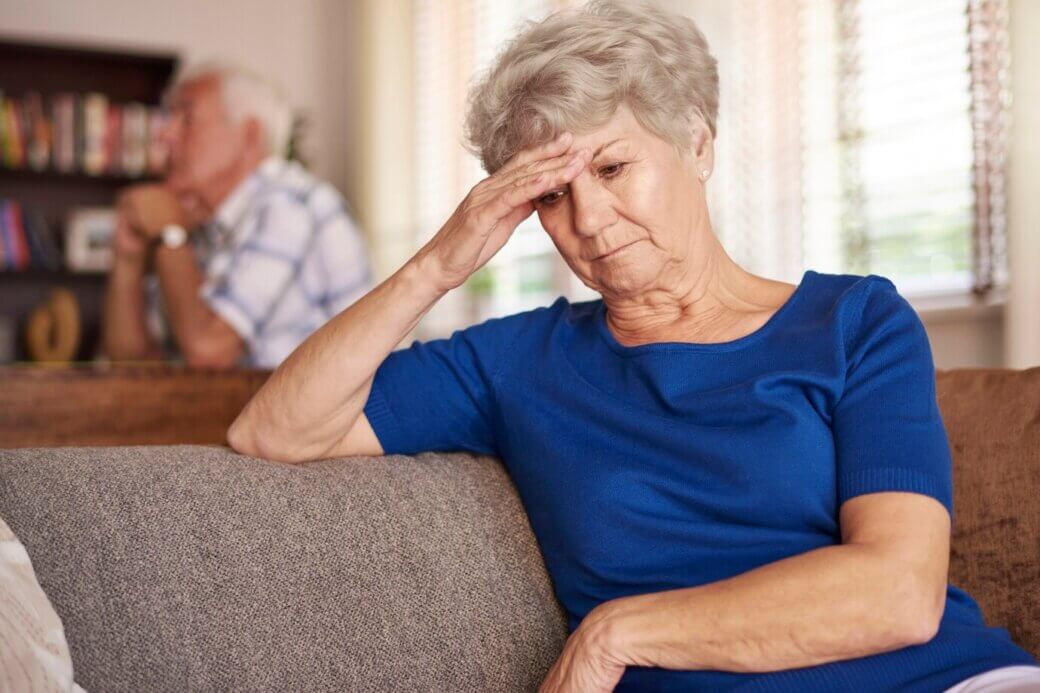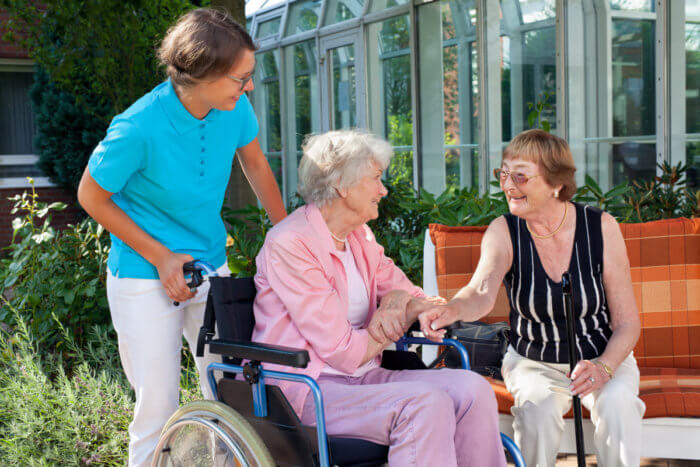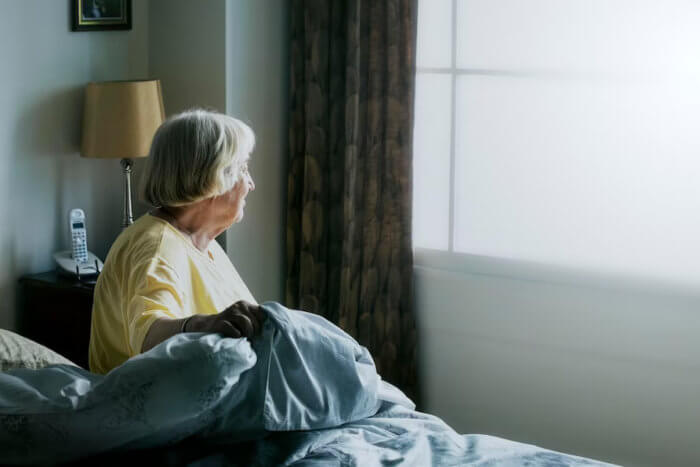What are the symptoms of anxiety in older adults?

Welcome to The Valencia Home by MD Senior Living, where we prioritize the well-being of our elderly residents. In this insightful blog post, we delve into the often-overlooked realm of anxiety among seniors. While anxiety is commonly associated with younger demographics, it’s crucial to recognize its manifestations in older adults. Let’s navigate through the labyrinth of symptoms of anxiety in older adults, shedding light on this prevalent yet under-discussed issue.
Recognizing Symptoms of Anxiety in Older Adults
Anxiety in seniors may not always manifest as overtly as in younger individuals. However, paying attention to subtle shifts in behavior and mood is essential. Seniors experiencing anxiety may exhibit symptoms such as restlessness, irritability, and excessive worrying. They might also express physical discomfort, such as muscle tension, fatigue, or trouble sleeping. Observing these signs attentively is crucial, as they can significantly impact the quality of life for older adults.
Understanding the Emotional Aspect
Emotional symptoms of anxiety in seniors can manifest differently from those in younger individuals. Older adults may not consistently articulate their feelings of fear or apprehension explicitly. Instead, they might express their anxiety through a range of emotions, including sadness, frustration, or even anger. These emotions can often be attributed to underlying anxiety, especially when they seem disproportionate to the situation at hand. By understanding these emotional nuances, we can offer better support and care to our senior loved ones.
Physical Manifestations of Anxiety
Anxiety can manifest physically in various ways for older adults. Seniors experiencing anxiety may report digestive issues like stomach aches or nausea. They might also experience frequent headaches or migraines, significantly impacting their daily lives. Additionally, seniors with anxiety may notice changes in appetite or weight loss, further exacerbating their physical discomfort. Recognizing these physical symptoms is crucial in addressing the holistic well-being of older adults.

Cognitive Effects of Anxiety
Anxiety can also take a toll on cognitive functions in seniors. Older adults experiencing anxiety may struggle with concentration and memory, leading to difficulties in completing daily tasks. They might also exhibit signs of confusion or disorientation, which can be alarming for them and their caregivers. By acknowledging these cognitive effects, we can tailor interventions and support systems to mitigate the impact of anxiety on seniors’ mental well-being.
Social Withdrawal and Isolation
Anxiety can often lead seniors to withdraw from social interactions and activities they once enjoyed. Older adults may feel overwhelmed by social situations, isolating themselves from friends and family. This withdrawal can exacerbate feelings of loneliness and depression, further exacerbating their anxiety. Encouraging seniors to maintain social connections and engage in meaningful activities can help alleviate these feelings of isolation and improve their overall mental health.
Impact on Daily Functioning
Anxiety can significantly impact seniors’ ability to perform daily tasks and maintain independence. Older adults experiencing anxiety may struggle with simple activities like cooking, cleaning, or managing medications. They might also avoid leaving their homes or participating in community events due to fear or apprehension. Recognizing these challenges and providing practical support can empower seniors to navigate daily life with confidence and ease.
Addressing Underlying Causes
Understanding the underlying causes of anxiety in seniors is crucial for effective intervention and support. Anxiety in older adults can stem from various sources, including health issues, life transitions, or past traumas. By identifying these triggers, caregivers and healthcare professionals can develop personalized treatment plans tailored to seniors’ needs. Addressing these underlying causes is essential to promoting seniors’ mental and emotional well-being through therapy, medication, or lifestyle adjustments.
Exploring Coping Strategies
Coping strategies play a crucial role in managing anxiety among seniors. Encouraging relaxation techniques such as deep breathing, meditation, or gentle exercise can help alleviate symptoms of anxiety. Additionally, engaging in enjoyable activities like hobbies, music therapy, or art can give seniors a sense of purpose and fulfillment. Creating a supportive environment where seniors feel heard and valued can also significantly impact their mental well-being.
Seeking Professional Support
For seniors experiencing severe or persistent anxiety, seeking professional support is essential. Mental health professionals, including therapists, counselors, or psychiatrists, can offer specialized interventions and treatment options tailored to seniors’ needs. Cognitive-behavioral therapy (CBT), medication management, and other evidence-based approaches can help seniors effectively manage their anxiety symptoms and improve their overall quality of life.
Educating Caregivers and Family Members
Educating caregivers and family members about anxiety in seniors is crucial for providing comprehensive support. Caregivers should be aware of the signs and symptoms of anxiety and equipped with strategies to address them effectively. Open communication channels between seniors, caregivers, and healthcare professionals can facilitate early intervention and prevent the escalation of anxiety-related issues.
Promoting a Healthy Lifestyle
Maintaining a healthy lifestyle is vital to managing anxiety among seniors. Encouraging regular exercise, nutritious eating habits, and adequate sleep can contribute to overall well-being and reduce anxiety symptoms. Limiting caffeine and alcohol intake, as well as avoiding tobacco products, can also help mitigate anxiety in older adults. By promoting healthy habits, we can empower seniors to take control of their mental and physical health.
Fostering a Supportive Community
Creating a supportive community where seniors feel connected and valued is essential for combating anxiety. Seniors should have access to social support networks through community centers, senior living facilities, or online forums. Building meaningful relationships and fostering a sense of belonging can help alleviate feelings of loneliness and isolation, reducing the risk of anxiety among older adults.
Empowering Seniors to Advocate for Themselves
Empowering seniors to advocate for their own mental health needs is crucial in addressing anxiety. Encouraging open communication with healthcare providers and expressing concerns about anxiety symptoms can facilitate timely intervention and support. Seniors should feel empowered to seek help when needed and actively participate in decisions regarding their mental health care.
Continued Monitoring and Support
Lastly, continued monitoring and support are essential for managing anxiety in seniors. Regular check-ins with healthcare providers, ongoing assessments of anxiety symptoms, and adjustments to treatment plans as needed can ensure seniors receive the support they need to thrive. By prioritizing continuing care and support, we can help seniors effectively manage anxiety and enjoy a higher quality of life.
Join our community
In conclusion, managing anxiety in older adults requires a holistic approach that addresses emotional, physical, and social factors. By promoting coping strategies, seeking professional support, and fostering a supportive community, we can effectively empower seniors to manage their anxiety symptoms and improve their overall well-being. At The Valencia Home by MD Senior Living, we are dedicated to providing comprehensive care and support for seniors experiencing anxiety. If you or a loved one are seeking assistance with anxiety management, please don’t hesitate to contact us at 480-605-4002. Together, we can navigate this journey towards enhanced mental and emotional health and symptoms of anxiety in older adults.






Leave a Comment